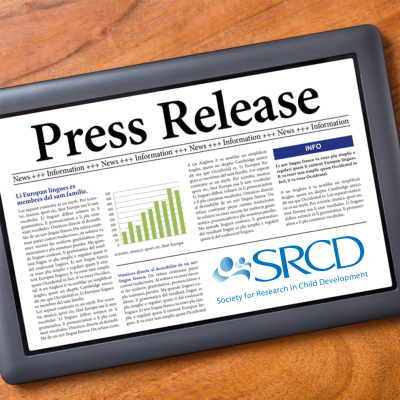Topics of Teen Sibling Fights Affect Anxiety, Depression, Self-Esteem
PRESS RELEASE / CHILD DEVELOPMENT: Embargoed for Release on December 20, 2012
Fights between siblings about simple things, like whose turn it is to empty the dishwasher, aren’t harmless. Rather, such fights are about equality and fairness, and they can lead to depression, according to a new study.
The longitudinal research, by researchers at the University of Missouri, appears in the journal Child Development.
Although teen siblings fight about a lot of different issues, many of their fights can be categorized as being about equality and fairness (for example, whose turn it is to empty the dishwasher) or invasion of personal space (for example, borrowing clothes without asking). This study found that teens who fought with their siblings over equality and fairness issues were more depressed a year later, and teens who fought with their siblings about personal space issues were more anxious and had lower self-esteem a year later.
While the results related to depression were found in all adolescents, the results related to anxiety and self-esteem appeared to be more detrimental for some siblings than others—younger brothers with older brothers and girls with brothers had more anxiety, and teens in mixed-gender sibling pairs had lower self-esteem.
The study also found that teens who were more depressed and anxious had more conflicts with their siblings a year later, and teens with more self-esteem had fewer conflicts a year later.
“Our findings may help parents, psychologists, and others who work with and support teens to understand that all sibling conflicts are not created equally,” noted Nicole CampioneBarr, assistant professor of psychological sciences at the University of Missouri, the study’s lead author. “It may be possible to avoid sibling conflicts by recognizing that adolescents desire more privacy as they strive for greater independence. In addition, structured tradeoffs in chore duties and equal time with shared household items (like computer/video games) give siblings fewer opportunities to compare themselves unfavorably to one another.”
Campione-Barr also noted that “different conflicts influence teens’ adjustment in different ways, and the content of conflicts must be studied together with the frequency and intensity of conflicts.” For instance, it was only the frequency of issues related to equality and fairness that predicted symptoms of depression, while both frequency and intensity of conflicts over invasion of personal space were detrimental.
The researchers looked at 145 pairs of mostly European American, middle-class siblings—average ages were 15 and 12—over the course of a year. The teens rated different topics of possible conflict, noting how often the battles occurred and how “hot” the discussions were. The study then examined ties between the arguments and teens’ reports of depressed mood, anxiety, and self-esteem after a year.
“These findings extend our knowledge of how the emotional adjustment of individual adolescents influences later sibling conflict and vice versa,” Campione-Barr said.
The study was funded by the University of Missouri Research Board and the University of Missouri-Columbia Research Council.
###
Summarized from Child Development, Volume 84, Issue 3, Differential Associations Between Domains of Sibling Conflict and Adolescent Emotional Adjustment by Campione-Barr, N, and Greer, KB, (University of Missouri) and Kruse, A (formerly at University of Missouri, now at Yale University). Copyright 2012 The Society for Research in Child Development, Inc. All rights reserved.


